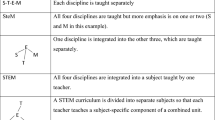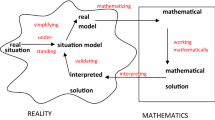Abstract
This article compares the national-level requirements for master degree provision in England, Denmark and Portugal following the implementation of the Bologna Process, and ponders upon the reconcilability of these requirements in cross-national initiatives (e.g. joint degrees). In all three countries, master degrees have to comply with the national qualification frameworks, which have been verified against the Framework for Qualifications of the European Higher Education Area. Other regulations apply, however. In Denmark and Portugal, higher education degrees are tightly regulated by legislation, while the Academic Infrastructure developed by the Quality Assurance Agency in the UK acts as a broad reference for degree design, giving English institutions a high degree of freedom. Findings reveal the existence of contradictory requirements which have arisen further to policy adaptations, made possible by the non-legally binding character of Bologna and its loose policy mechanisms.
Similar content being viewed by others
References
Alesi, B., Bürger, S., Kehm, B. M., & Teichler, U. (2005). Bachelor and master courses in selected, countries compared with Germany. Bonn: Federal Ministry of Education and Research.
Amaral, A., Neave, G., Musselin, C., & Maassen, P. (2009). European integration and the governance of higher education and research. London: Springer.
Ball, S.J. (1994). Education reform: A critical and post structural approach. Buckingham: Open University Press.
Becher, T., Henkel, M., & Kogan, M. (1994). Graduate education in Britain. London: Jessica Kingsley.
Birtwistle, T. (2009). Towards 2010 (and then beyond)—The context of the Bologna process. Assessment in Education: Principles, Policy & Practice, 16(1), 55–63.
Bologna Working Group on Qualifications Frameworks. (2005). A framework for qualifications of the European higher education area. Copenhagen: Danish Ministry of Science, Technology and Innovation.
Bone, D. (2008). Internationalisation of higher education: A ten-year view. London: Department for Innovation, Universities and Skills.
Bowe, R., Ball, S., & Gold, A. (1992). Reforming education and changing schools: Case studies in policy sociology. London: Routledge.
Cemmell, J., & Bekhradnia, B. (2008). The Bologna process and the UK’s international student market. Oxford: Higher Education Policy Institute.
Cerych, L., & Sabatier, P. A. (1986). Great expectations and mixed performance: The implementation of higher education reforms in Europe. Stoke on Trent: Trentham Books.
Conference on Master-level Degrees. (2003). Conclusions and recommendations of the conference. March 14–15, Helsinki, Finland. Retrieved from https://doi.org/www.uta.fi/opiskelu/opetuksen_tuki/bolognan_prosessi/Master_revised.pdf
Danish Evaluation Institute. (2009). Self-certification. Verification of compatibility of the Danish National qualifications framework for higher education with the framework for qualifications of the European higher education area. Copenhagen: Danish Evaluation Institute.
Danish Rectors’ Conference. (2002). Danish universities. Copenhagen: Danish Rectors’ Conference.
Davies, H. (2009). Survey of master degrees in Europe. Brussels: European University Association.
Davies, W. (2007). Mastering diversity. London: UK Higher Education Europe Unit.
European Commission. (2009). ECTS users’ guide. Luxembourg: Office for Official Publications of the European Communities.
European Consortium for Accreditation in Higher Education. (2012). Assessment framework for joint programmes. The Hague: European Consortium for Accreditation in Higher Education.
Europe Unit. (2004). Masters degrees and the Bologna process. London: Europe Unit, Universities UK.
Gornitzka, Å., Kogan, M., & Amaral, A. (2005). Reform and change in higher education. Analysing policy implementation. Dordrecht: Springer.
Gornitzka, Å., Kyvik, S., & Stensaker, B. (2005). Implementation analysis in higher education. In Å. Gornitzka, M. Kogan, & A. Amaral (Eds.), Reform and change in higher education. Analysing policy implementation (pp. 35–57). Dordrecht: Springer.
Harris, M. (1996). Review of postgraduate education. Bristol: Higher Education Funding Council for England.
House of Commons Education and Skills Committee. (2007). The Bologna process. Fourth Report of Session 2006–07. London: The Stationery Office Limited.
International Committee. (2011). The framework for higher education qualifications in Portugal. Report of the International Committee on the Verification of Compatibility with the Qualifications Framework of the European Higher Education Area.
Johnson, S., & Wolf, A. (2008, September 7–12). Qualifications recognition across borders. Paper presented at the annual conference of the International Association for Educational Assessment, Cambridge.
Kehm, B. M., & Teichler, U. (2006). Which direction for bachelor and master programmes? A stocktaking of the Bologna process. Tertiary Education and Management, 12(4), 269–282.
Ministeriet for Videnskab, Teknologi og Udvikling. (2003). Ministerial Order concerning the Act on Universities (the University Act). Copenhagen: Ministeriet for Videnskab, Teknologi og Udvikling.
Ministeriet for Videnskab, Teknologi og Udvikling. (2004a). Ministerial order no. 867 of 191081 2004. Ministerial order on examinations in university programmes. Copenhagen: Ministeriet for Videnskab, Teknologi og Udvikling.
Ministeriet for Videnskab, Teknologi og Udvikling. (2004b). Ministerial order no. 338 of 6 May 2004. Ministerial order on bachelor and master’s programmes (candidatus) at universities. Copenhagen: Ministeriet for Videnskab, Teknologi og Udvikling.
Ministério da Ciência, Tecnologia e Ensino Superior. (2005). Law No. 49/2005, of 30 August. Lisboa: Ministerio da Ciencia, Tecnologia e Ensino Superior.
Ministério da Ciência, Tecnologia e Ensino Superior. (2006). Decree-Law No. 74/2006, of 24 March. Lisboa: Ministério da Ciência, Tecnologia e Ensino Superior.
Ministério da Inovação, Tecnologia e Ensino Superior. (2005). Decree-Law No. 42/2005, of 22 February. Lisboa: Ministério da Inovação, Tecnologia e Ensino Superior.
Ozga, J. (2000). Policy research in educational settings: Contested terrain. Buckingham: Open University Press.
Quality Assurance Agency (QAA). (2008). The framework for higher education qualifications in England, Wales and Northern Ireland. Gloucester: Quality Assurance Agency.
Quality Assurance Agency (QAA). (2009). Verification of the compatibility of the framework for higher education qualifications in England, Wales and Northern Ireland (FHEQ) with the framework for qualifications of the European higher education area (FQ-EHEA). Gloucester: Quality Assurance Agency.
Quality Assurance Agency (QAA). (2010). Master’s degree characteristics. Gloucester: Quality Assurance Agency.
Reynolds, J., & Saunders, M. (1987). Teacher responses to curriculum policy: Beyond the “delivery” metaphor. In J. Calderhead (Ed.), Exploring teachers’ thinking (pp. 195–214). London: Cassell Educational.
Sin, C. (2012). Researching research in master’s degrees in Europe. European Educational Research Journal, 11(2), 290–301.
Smith, A. (2010). One step beyond: Making the most of postgraduate education. London: Department for Business, Innovation and Skills.
Sursock, A., & Smidt, H. (2010). Trends 2010: A decade of change in European higher education. Brussels: European Universities Association.
Tauch, C. (2004). Almost half-time in the Bologna process—Where do we stand? European Journal of Education, 39(3), 275–288.
Tauch, C., & Rauhvargers, A. (2002). Survey on master degrees and joint degrees in Europe. Geneva: European University Association.
The Royal Society. (2008). A higher degree of concern. London: The Royal Society.
Trowler, P. (2002). Higher education policy and institutional change: Intentions and outcomes in turbulent environments. Buckingham: Open University Press.
Trowler, P., Saunders, M., & Knight, P. (2004). Change thinking, change practices. A guide to change for heads of department, subject centres and others who work “middle-out’. Paper written with support from: The LTSN Generic Centre, The UK Evaluation of the LTSN and The HEFCE Innovations project “Skills plus”.
Veiga, A., & Amaral, A. (2006). The open method of coordination and the implementation of the Bologna process. Tertiary Education and Management, 12(4), 283–295.
Witte, J. (2006). Change of degrees and degrees of change. Comparing adaptations of European higher education systems in the context of the Bologna process (Ph.D. thesis). CHEPS/Twente University, Enschede.
Author information
Authors and Affiliations
Corresponding author
Rights and permissions
About this article
Cite this article
Sin, C. The Devil in the Detail: Contradictory national requirements and Bologna master degrees. Tert Educ Manag 19, 16–31 (2013). https://doi.org/10.1080/13583883.2012.738241
Received:
Revised:
Published:
Issue Date:
DOI: https://doi.org/10.1080/13583883.2012.738241




